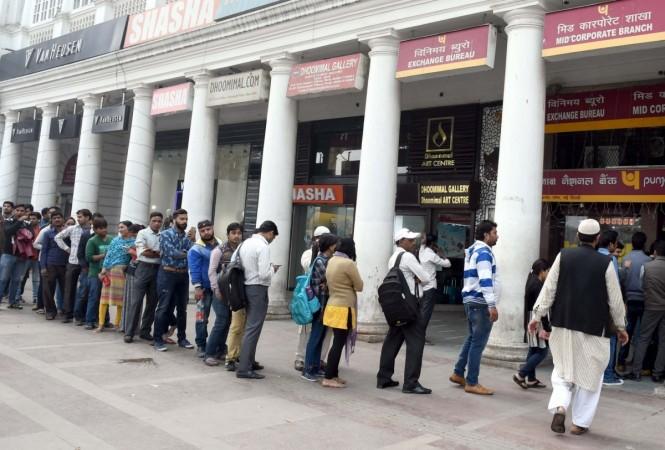
Bank employees are observing a day's strike on Tuesday (February 28), the second in eight months (the previous one was in July last year). But do these strikes impact basic banking transactions in an era of increasing digitisation and "faceless" banking? The impact was not to be seen on the stock markets also, with bank stocks trading with marginal gains at around 1.05 pm on the BSE.
Read: Public sector banks, including SBI and PNB, to go on strike today
Here are three reasons why the bank strike would pass off as a non-event.
1. Private sector bank employees not participating
The strike by about 10 lakh (1 million) employees including those working at large public sector banks such as State Bank of India (SBI), Punjab National Bank (PNB) and Bank of Baroda is bound to be a damp squib, given these employees are not joined by their counterparts at the top private sector, namely ICICI Bank, HDFC Bank and Axis Bank.
2. Proliferation of ATMs
An update by the Reserve Bank of India (RBI) said that India had 2.05 lakh ATMs across India as of October 31, 2016, facilitating not just cash transactions, but also enabling people to check their balances.
3. Digital banking
The sharp rise in digital modes of transactions obviates the need for brick-and-mortar banking. With banking and non-banking entities facilitating transactions to be done over the Internet and on mobile handsets, retail banking is hardly going to be impacted.
The strike call has been given by the United Forum of Bank Unions (UFBU), an umbrella organisation of nine unions, but National Organisation of Bank Workers and National Organisation of Bank Officers are not part of the strike.
What are the employees demanding?
The demands range from seeking "greater accountability" of senior bank executives for loans given to the private sector and the mounting bad loans, to compensation for having worked extra hours during the demonetisation drive (November 10 to December 30, 2016).
The strike became inevitable after efforts to find a solution to the demands of bank employees failed to fructify. The Chief Labour Commissioner at the conciliation meeting on February 21 could not make any headway after the Indian Bank Association (IBA) — that represents banks — refused to agree to the demands of the bank unions.
Impact on clearing operations
C.H. Venkatachalam, General Secretary, All India Bank Employees' Association (AIBEA) told the IANS that about 40 lakh cheque clearances worth Rs 22,000 crore would be impacted due to the strike.
Lessons not learnt
The earlier strike in July last year was to protest against the merger of five associate banks with SBI but that has failed to have any impact, as the merger is on.
"In terms of the said orders, the entire undertaking of SBBJ, SBM, SBT, SBP and SBH shall stand transferred to and vested in the State Bank of India from April 01, 2017," the SBI said in a regulatory filing a few days ago, laying to rest any controversy on the matter.
The five banks that will be merged with SBI are State Bank of Mysore, State Bank of Travancore, State Bank of Patiala, State Bank of Hyderabad and State Bank of Bikaner and Jaipur.

















